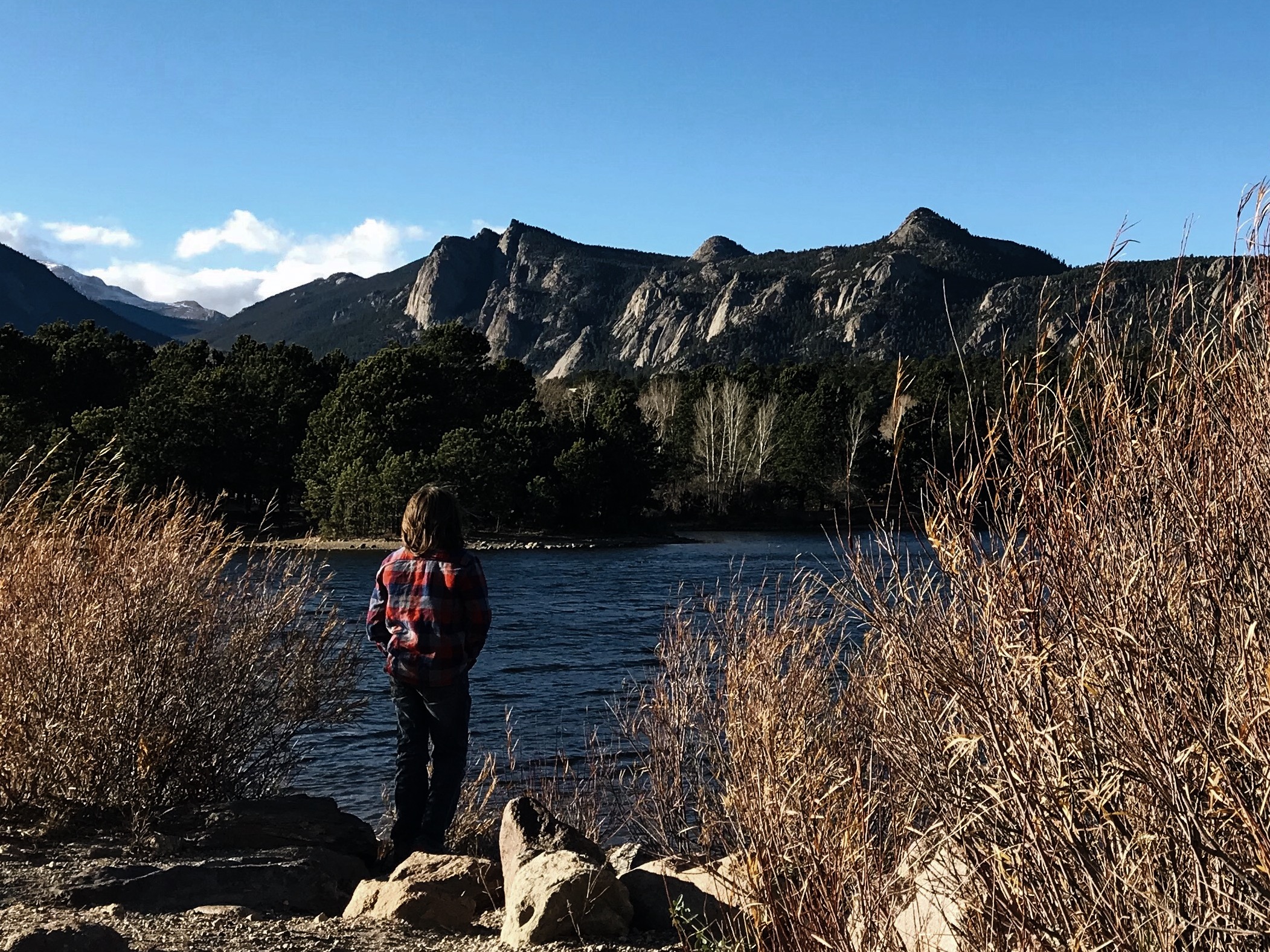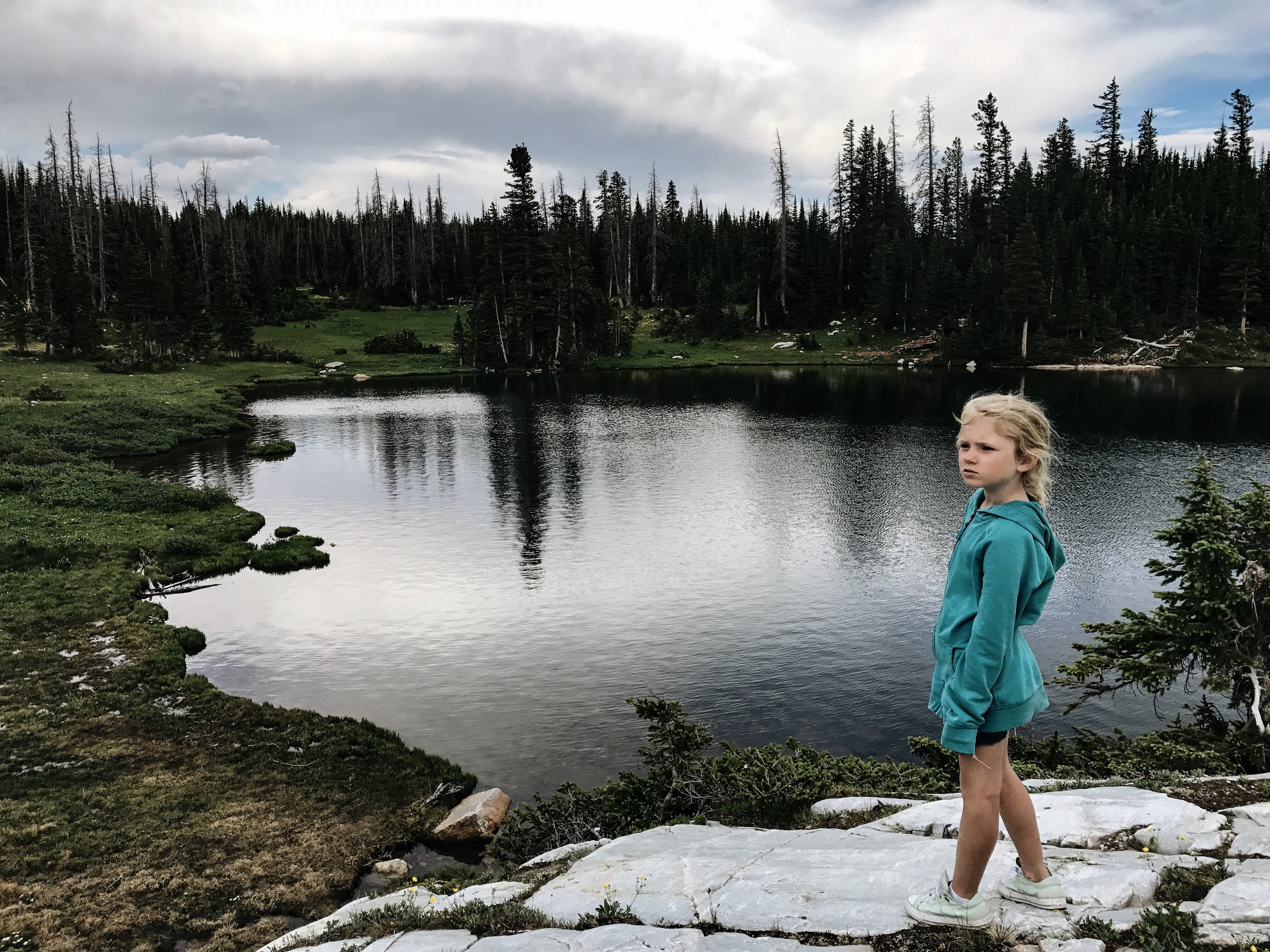My Family : We cram the frame
“Do for one what you wish you could do for many.” - Andy Stanley
This past week, I was fortunate to take my family on a quick road trip to Seattle, the Haro Strait, and the Oregon coast, and it was one of our favorite family trips. From start to finish.
At one gas station, however, I was in desperate need of the restroom when, to my dismay, I realized I needed a code to open the door. Which I didn’t have. I tried both restrooms, even knocking a few times to see if they were in use (which they weren’t). A gentleman behind me watched my whole struggle, said nothing, waited till I backed off, then put in the code and closed the door.
“What?” I said aloud.
One of the workers then peaked his head around the corner, “7537” he yelled. I punched in the numbers, opened the door, and took a seat. Nature was calling. But I digress.
For a while, that guy - the one who could have helped me out but didn’t - nagged on my mind. “Why didn’t he just give me the code?” I thought. “Why didn’t he help?”
I couldn’t answer that question, but the incident did spark an idea. Or rather, a perspective . . . look for the helpers. Instead of focusing on the people/events that frustrate me, look for the people and events that bring unexpected joy.
So I did. And there many.
One was the young man in front of my six-year-old son and me. We were headed to the elevator that would take us down from atop the Space Needle and the young man was a few paces ahead of us.
“Can I push the button, Daddy?” Elias asked.
“Sure, buddy.” I said. Then, a few steps later, the young man in front of us stopped, turned, and with a slightly embarrassed smile on his face, pointed Elias towards the down button. He had overheard the small request and chose to do something about it. He chose to help, even when it wasn’t expected.
Another was the middle-aged mechanic who stopped his busy day to give our SUV a thorough lookover because I was nervous about some sounds. He even dumped a liter of oil in because we were a bit low. When asked how much it would cost, his hand batted my question away, “No problem. Just get home safe.” He provided time, oil, and a whole lotta comfort, all at no charge.
There was also the security guard at a nice high-rise building who ignored the “No public restroom sign” and heard my request to let our kiddos use the restroom. He said yes, then allowed my entire family access.
“Thank you,” I said repeatedly.
He smiled and said, “Happy to help.” He broke a rule to help a family.
These events, although small and insignificant (to the point that, if I hadn’t written them down, would have been forgotten and lost amidst the other memorable or stressful moments), reminded me of the power of perspective, and of simple moments.
We can either focus on the people and events that frustrate us and bring us down, or we can see the helpers, we can BE the helpers - “Moment Makers” - just by seeing and hearing the people around us.
How we choose to see the world makes a world a difference in how we interact with it.
Although life is hard, disappointing, and often a seemingly endless battle, it is also filled will hope, beauty, and meaningful reminders. We just need to look for them, and at times, create them.
“Do for one what you wish you could do for many.”
That’s what I’ve been thinking about this past week.
Here are a few favorites from the month of June!
Favorite Book:
Fans First: Change The Game, Break the Rules & Create an Unforgettable Experience
When adversity hits, most people dwell on the negative. It’s raining. We’ve lost power. There’s construction . . .
When things go wrong, when there’s a challenge with the experience, that is the best time to wow your fans. They’re not expecting you to make a random wrong a right, it’s a little heroic. Or, as Bananas catcher Bill LeRoy might say, a little joyful” (pg 47).
Favorite Advice:
This one was offered by a friend (Gary Phile!) who called me the other day. “I think you’ll like this,” he said. And I do. So very much.
When in the presence of others, when the conversation or action causes us even the slightest alarm, work through the following questions:
Does it need to be said?
Does it need to be said by me?
Does it need to be said right now?"
If the answer to all three is, “Yes!” Speak up. If there is even a single “No,” keep quiet and figure out who and when - and if anything! - needs to be said.
And I just love that.
Favorite Podcasts:
At the Table: Mind the Gap, with Patrick Lencioni
When it comes to organizational clarity, a tiny gap on a leadership team can become a big crack down the line. This week, Pat and the team discuss a few reasons why these gaps appear, and how to best prevent them.
Plain English: Why So Many Young Men are Lonely, Sexless, and Extremely Lonely, with Derek Thompson
Many men - especially younger men - are socially disconnected, pessimistic about the future, and turning to online anger . . . they are facing higher rates of depression symptoms, suicidal thoughts, and a sense of isolation, as seen in the agreement of 65% that ‘no one really knows me well.’
Favorite Conundrum:
I’m taking the money. You?
Let me know of anything you’ve been reading, watching, listening to, or have been inspired by!
Happy July!
#doGREATthings!
Give. Relate. Explore. Analyze. Try.
For more on . . .















